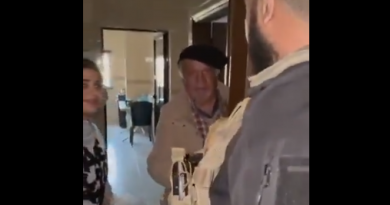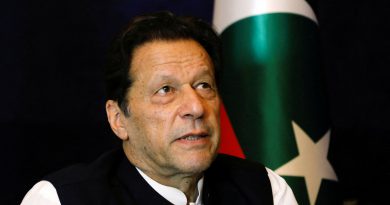Europeans, Iran to cross swords at nuclear talks
Vienna (Reuters) – European powers will demand at talks on Friday that Iran stop violating their nuclear deal or risk renewed U.N. sanctions, but with Tehran angry over a lack of European protection from U.S. sanctions, there appeared to be scant scope for compromise.
The afternoon meeting comes amid heightened friction between Iran and the West. Tehran has rolled back its commitments under the 2015 deal in response to Washington’s withdrawal last year and reimposition of sanctions that have crippled its economy.
The Europeans and Iran clashed on Thursday over the Iranian ballistic missile programme before senior diplomats from the remaining parties to the deal – Britain, France, Germany, China and Russia – met Iranian officials in Vienna on Friday to assess the state of the nuclear agreement.
Underlining the tension, the Iranian delegation threatened to boycott the talks after discovering that an exiled Iranian opposition group planned an anti-government protest outside the hotel where the meeting was due to take place, diplomats said.
The EU, which hosts the talks, scrambled to move the meeting to its nearby mission to the United Nations in Vienna.
As the U.S.-Iranian confrontation has unravelled the nuclear accord, the Europeans have been torn between trying to save it and responding to Iran’s breaches, which have increasingly tested their patience.
The breaches have included exceeding the maximum amount of enriched uranium it is allowed under the deal and resuming enrichment at Fordow, a plant buried inside a mountain that Iran hid from U.N. nuclear non-proliferation inspectors until Western spies exposed it in 2009.
“I think the window for a negotiation and to save the deal is barely open,” said a European diplomat.
The European “E3” powers – France, Britain and Germany – are considering triggering a mechanism in the deal that could lead to the reimposition of global, United Nations sanctions.
Three diplomats said the political decision was unlikely to be made until January, when Iran is expected to further scale back its adherence to the pact, under which it curtailed its nuclear activities in return for relief from sanctions.
“The European parties to the deal should know that the clock is ticking for them. They try to keep Iran in the deal but then take no action against America’s bullying and pressure,” said a senior Iranian official.
Tehran has repeatedly criticised the three European powers for failing to shield Iran’s economy from the far-reaching U.S. financial and trade sanctions, which have driven away foreign companies interested in doing business there.
Highlighting the widening gap between the two sides, Iran’s foreign minister said on Thursday the E3 had shown their “miserable incompetence” in fulfilling their commitments.
He spoke after they wrote to the U.N. Security Council accusing Tehran of having nuclear-capable ballistic missiles.
“I don’t think the Europeans have reached their red line yet, but the repeated violations and the fact we’re now entering (nuclear) proliferation territory means their credibility is on the line,” said a Western diplomat.



